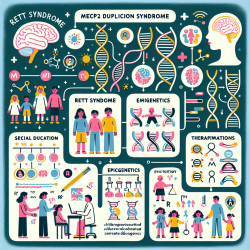The Global Spine Care Initiative (GSCI) model of care represents a transformative approach to addressing spine-related disorders, particularly in underserved communities. The recent qualitative study conducted in Cross Lake, Northern Manitoba, Canada, highlights the potential of this model to bridge gaps in healthcare delivery for Indigenous populations. This blog post explores how practitioners can leverage the insights from this study to enhance their skills and advocate for more inclusive and effective spine care.
Understanding the Context
The study conducted in Cross Lake utilized the Theoretical Domain Framework (TDF) to capture the perspectives of community leaders and clinicians regarding the implementation of the GSCI model. The research revealed several key themes:
- Cultural Context: Emphasizing the importance of integrating traditional practices and community engagement in healthcare delivery.
- Providing Care: Addressing disparities in access to spine care services and advocating for non-pharmacological treatment options.
- Experience of Pain: Recognizing the multidimensional nature of pain, including its physical, emotional, and spiritual aspects.
- Opportunities for Improvement: Identifying systemic challenges and proposing solutions to enhance continuity of care and patient education.
- Proposed Program Implementation: Highlighting the community's optimism towards new clinical services and movement programs.
Implementing Holistic Spine Care
The findings from Cross Lake underscore the need for a holistic approach to spine care that respects Indigenous knowledge systems and cultural practices. Practitioners can enhance their skills by considering the following strategies:
- Cultural Sensitivity: Engage with community leaders and elders to understand local customs and integrate traditional healing practices into treatment plans.
- Non-Pharmacological Approaches: Advocate for evidence-based treatments such as chiropractic care, physiotherapy, and movement programs that align with cultural preferences.
- Patient Education: Develop educational materials that are culturally relevant and accessible, empowering patients to take an active role in their health management.
- Collaborative Care Models: Foster interprofessional collaboration among healthcare providers to ensure comprehensive and coordinated care delivery.
The Role of Practitioners in Advocacy
Practitioners have a crucial role in advocating for policy changes that support equitable healthcare access for Indigenous communities. By participating in research initiatives like the GSCI study, practitioners can contribute valuable insights into the barriers and facilitators of implementing new models of care. Additionally, engaging in continuous professional development through conferences and webinars can help practitioners stay informed about best practices in culturally sensitive healthcare delivery.
Encouraging Further Research
The Cross Lake study highlights the importance of ongoing research to refine and adapt healthcare models to diverse cultural contexts. Practitioners are encouraged to collaborate with researchers and community stakeholders to explore innovative solutions that address the unique needs of Indigenous populations. By contributing to a growing body of evidence on culturally informed healthcare practices, practitioners can help shape a more inclusive future for spine care.
Conclusion
The implementation of the GSCI model in Cross Lake offers valuable lessons for practitioners seeking to improve their skills and advocate for more equitable healthcare. By embracing holistic approaches that honor Indigenous knowledge systems, practitioners can play a pivotal role in transforming spine care delivery. To read the original research paper, please follow this link: Views and perspectives toward implementing the Global Spine Care Initiative (GSCI) model of care, and related spine care program by the people in Cross Lake, Northern Manitoba, Canada: a qualitative study using the Theoretical Domain Framework (TDF).










